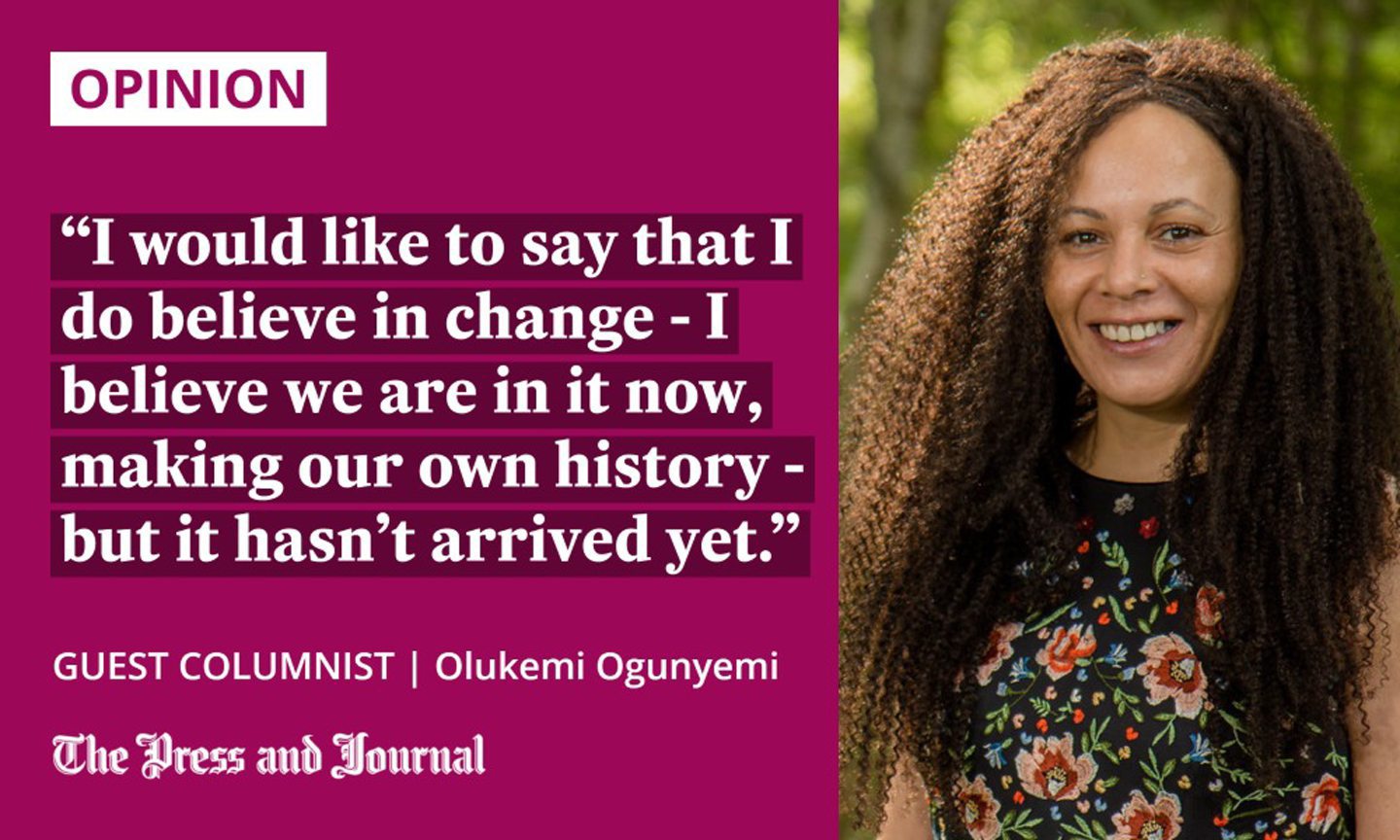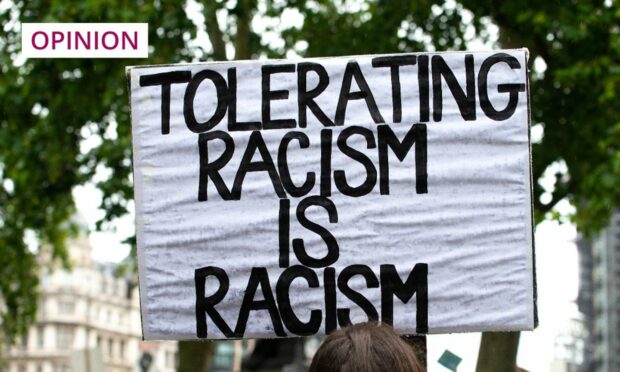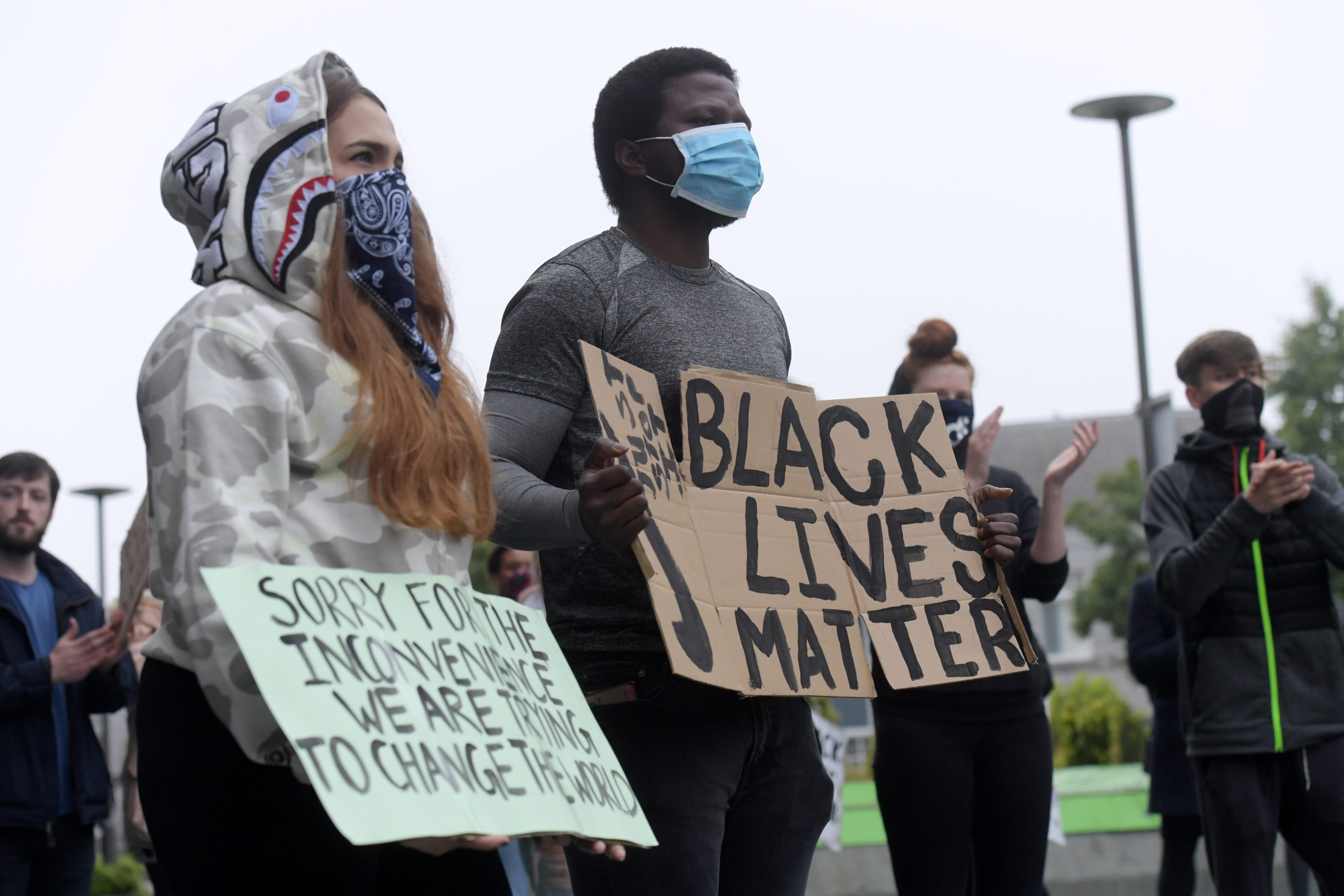In my book, Brown Girl in the Ring, I talk, metaphorically, about a table where we can come together to share our experiences of racism in our society, whether that be conscious or unconscious.
Awareness brings understanding and choice.
Most of the readers who I have received comments from said they’d felt a sense of responsibility after they’d read about my experiences of racism in our society. When we feel responsible for something or someone, we take care of it. This is how we build our new foundations and real community, by sharing experiences to raise awareness.

So, the first thing I would like to bring to the table is interracial relationships. Is love enough? As a mixed-race woman and mother, sadly, my answer is no.
I don’t doubt that black, white and mixed-race parents are loving, but this is not what I’m talking about. What I’m saying is that it is not enough.
Mixed-raced and black children also need to be supported and validated in their experiences of racism. They need to understand why this happens to them.
Validate your child’s experiences
We, as parents, need to accept that we can’t stop our children experiencing racism. Typically, in a mixed-race family, only one parent is black or mixed-race, and experiences the same as the child. The white parent certainly loves and supports their mixed-race child, but does not have the same experiences.
Our young people can’t have a voice unless we give them one
For example, the mixed-race child comes home and tells the white parent that they have been followed in a shop and looked at as if they were a criminal or, worse, asked to leave the shop. White parent, who loves their child and can’t imagine that anyone can behave like this towards them, responds: “Sweetheart, don’t be silly, you are just imagining it”, or: “It’s because you are beautiful.”
While both phrases are coming from a loving place and a desire to stop the child’s pain, they are damaging to the child. This teaches the child to conform to white silence.
"You cannot fight hatred with hatred; you fight hatred with love ..I want to hear why these people hate me so much". #scotlandandracism @JeanJohansson thank you for this accurate report on the state of #racism in Scotland pic.twitter.com/6NVb8vPyiU
— Debora Kayembe 🏴🇨🇩 (@DKAYEMBE) April 4, 2022
I have had to validate and help all of my children understand the similar experiences that they’ve encountered, and I know that only through honesty and validation can we help our children understand who they are and why people behave racially. Our young people can’t have a voice unless we give them one.
Even as an adult, I have had people tell me: “Don’t to be silly, it’s not like that here”, and: “We don’t see you as being different”.
I accept that these things are said to try to protect my feelings. However, it makes me feel worthless, unseen, unheard and that no one understands.
We live in an unconscious and conscious racial society
To be “unconscious” of the experiences of a person of colour, is to be part of racism. This is a form of colour blindness.
To be blind to our children’s racial experiences makes us part of the racism. This tells them that their experiences are not reality which, in turn, causes great confusion in the child and teaches them that the racism they experience is not real, so they shouldn’t talk about it.
We black and people of colour, have a responsibility if we are in an interracial relationship to educate our white partners, to ensure that our future children of colour grow up in reality and are heard, validated and supported in their experiences.
I would like to say that I do believe in change – I believe we are in it now, making our own history – but it hasn’t arrived yet. Still we must, unfortunately, support our children living in an unconscious and conscious racial society.
We have some of the best laws in the world for racism, yet a large section of society has no understanding of why we need them in the first place. It’s like passing an exam that someone gave you the answers for.
Without understanding, there can be no real change.
Olukemi Ogunyemi is a Scottish author who lives in the north


Conversation